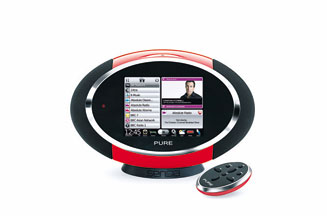
Digital Radio UK will represent the interests of the BBC, commercial radio stations such as Global and Absolute, and digital multiplex operator Arqiva, and will seek to manage expansion of the platform.
Andrew Harrison, chief executive of commercial radio trade body RadioCentre, said the new entity will build digital coverage, encourage take-up of low-cost DAB sets and market digital switchover. ‘We will look at the digital TV switchover model, which has been successful so far,' he added.
However, agency sources claim the DAB drive has been led by radio industry players with a ‘vested interest'.
Mark Middlemas, managing partner at media agency Universal McCann, warned that the digital radio debate needs to be informed by consumer feedback. ‘It is sensitive from a social point of view. It is an intimate medium and cannot be imposed.'
Digital Radio UK has advertised for a chief executive to set out its strategy. ‘Someone from outside radio could also benefit the process,' added Middlemas. ‘It needs a marketer who understands the consumer background rather than radio.'
Advertisers also remain to be convinced that the medium has a solid future.
The sector is small fry when put up against platforms such as TV; in the UK, its annual value is just £1.1bn. Stations often rely on local advertising and sponsorship for revenues. Harrison has argued, though, that there will always be ‘a core element of advertising which is local, which is good as it is targeted'.
Digital Radio UK has some serious targets to meet to push through analogue switch-off in 2015. At present, less than a third of UK households have a DAB radio. The platform does not have full UK coverage and reception is often poor.
Radio manufacturers are working to make DAB more attractive to consumers. Pure, for example, has launched a range of Sensia radios with big, high-resolution colour touch-screens. Digital Radio UK claims such products can offer brands new opportunities.
However, these sets have a hefty price tag - £250. As Harrison noted: ‘We need to encourage more of a low-cost entry point.' Digital Radio UK will also work with car manufacturers to ensure that vehicles are sold with digital radios already installed.
Digital Radio UK is striving to push up the proportion of radio listening via the platform to at least 50% by the end of 2013. However, many claim the target is not high enough, and would alienate remaining analogue listeners at switchover.
The radio sector argues that DAB offers listeners choice, and Digital Radio UK aims to look at the potential for new niche services, as well as digital radio on multiple platforms.
However, if most listeners are to adopt DAB, they must be persuaded that it offers significant benefits over analogue. As yet, this is far from the case.


.jpg)


.jpg)